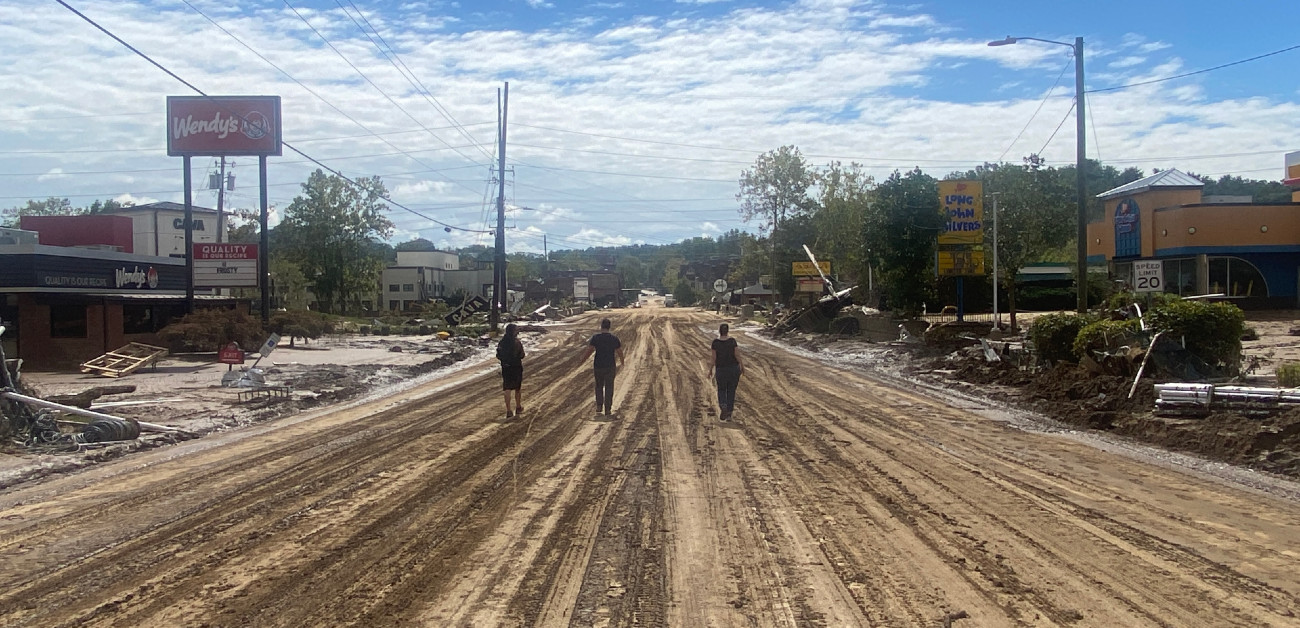R
eal‑estate agents in western North Carolina are proclaiming a comeback: “We’re back.”
Beatrix Masotti, managing broker at Premier Sotheby’s International Realty in Asheville, says the biggest frustration is that people don’t know the business is open, so tourists stay away. “We have beautiful homes for sale,” she repeats.
The area is famed for its mountains, breweries, art scene, and historic architecture. A year ago, Category 4 Hurricane Helene struck, dumping over 30 inches of rain and turning the region into a disaster zone. The storm left 250 dead, $60 billion in damage, and flooded homes, roads, and utilities.
Real‑estate professionals felt the blow in many ways: listings vanished, economic activity stalled, and some lost their own homes or offices. One year later, Masotti’s Biltmore Village office is one of only seven businesses fully operational again, alongside the Grand Bohemian Hotel and The Corner Kitchen, a 130‑year‑old house turned restaurant. “That’s brought a lot of activity back to the village,” she says.
Before the flood, the village hosted big‑name retailers like Talbots and Williams‑Sonoma. When Masotti reopened in mid‑May, those stores were still under construction. “I was the lone ranger,” she recalls, “and then suddenly ‘Dumpster Row’ appeared, and now they’re all under construction.”
Home sales in Asheville are picking up, but the market mirrors national trends. In Banner Elk, 80 miles north, Lynne Lear, owner of Lear Group Real Estate, reopened her office in May, yet business remains sluggish. “Interest rates are high, confidence is low,” she says. “Real‑estate is still very slow.”
Lear’s story began with a grand opening of her office, followed by a celebratory party on September 25. The next night, Hurricane Helene struck, flooding her building and nearly washing away her house. She describes the devastation: “I spent the night in my downstairs bedroom closet listening to trees crashing onto my house because I had two tornadoes hit my house.”
Helene’s path—from north Florida to Kentucky—caused deadly winds, flash flooding, storm surges, landslides, and tornadoes. It claimed at least 250 lives, including over 100 in North Carolina, and was labeled the most devastating natural disaster in the state’s history. Low‑lying Banner Elk and Biltmore Village were overwhelmed by overflowing rivers. The Swannanoa River broke its crest record by more than 6.6 ft.
Masotti’s office at 10 Brook Street was buried in mud and silt, with a front door broken and furniture piled in the lobby. The building sits just two feet above the 100‑year floodplain, yet it still took in over six feet of water.
Both Masotti’s and Lear’s offices were gutted; electrical systems were removed. Lear’s home was uninhabitable for eight weeks, and several agents lost their homes. The storm caused roughly $60 billion in damage, cutting off electricity, cell service, sewage, and first‑responder access. Water returned to Banner Elk and Asheville only after weeks.
In the aftermath, community members shared what they could, restaurants served hot meals, and volunteers from World Central Kitchen and FEMA helped. Lear organized grocery runs and portable heat systems for over 300 homes. The REALTORS® Relief Foundation awarded $2.8 million in disaster relief, with $1 million earmarked for North Carolina. In June, the state launched Renew NC, a portal for homeowners to apply for repair, rebuild, or replacement funding, prioritizing low‑ and moderate‑income households.
Despite progress, remnants of the storm linger: buildings along the Swannanoa River still bear mud and debris; a telephone pole is partially snapped; a historic red house at Banner Elk’s entrance remains collapsed. Lear is moved to tears when she sees the house’s owner speaking with FEMA workers.
Tourism remains a lifeline. In 2023, Asheville attracted nearly $3 billion in visitor spending, supporting about 29,000 local jobs. Masotti and Lear hope the upcoming fall season will bring a tourism influx. “There are still many people suffering who have no homes or businesses washed away,” Masotti says. “But there are also businesses reopening and wanting to bring people back. Knowing we’re open for business is critical.”
A commemorative plaque in Masotti’s office marks the floodwater height from Helene, with white oak timbers that survived the storm. Lear, though still traumatized, feels hopeful on the one‑year anniversary. Banner Elk plans a community gathering outside the school that once served as a food distribution site, to celebrate recovery and solidarity.












